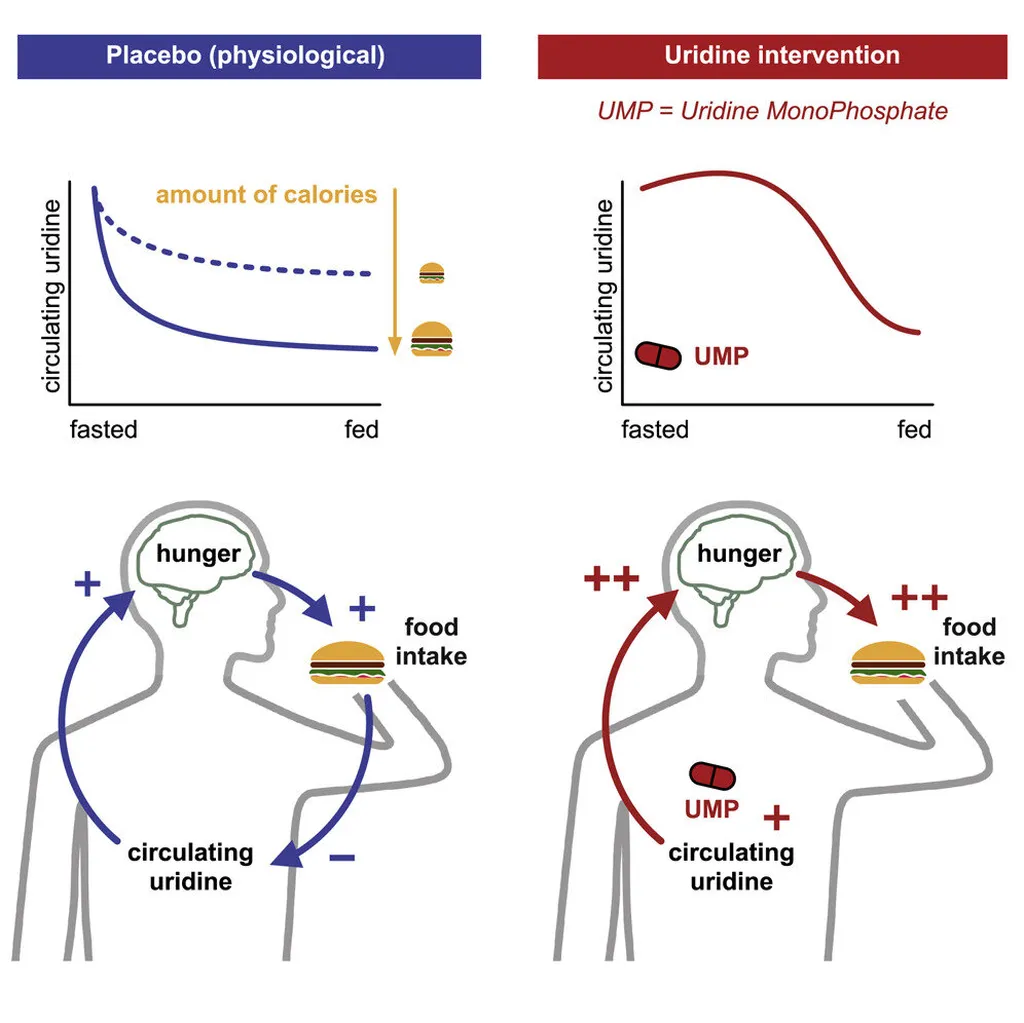In the quest to combat obesity and its associated metabolic disorders, researchers have turned their attention to an unexpected ally: uridine. A recent study published in the journal *Frontiers in Nutrition* (translated from Chinese as “前沿营养学”) has revealed that dietary uridine supplementation can significantly improve lipid metabolism in obese mice. The findings, led by Yilin Liu from the Henan Key Laboratory of Zhang Zhongjing Formulae and Herbs for Immunoregulation at Nanyang Institute of Technology, offer promising insights into the regulatory mechanisms of uridine and its potential applications in managing obesity.
Obesity, characterized by excessive adipose tissue storage, often leads to a cascade of metabolic disorders. Uridine, a naturally occurring nucleoside, has been known to exert modulatory effects on lipid metabolism, but its precise role in obesity has remained elusive. Liu and his team set out to investigate the effects of uridine supplementation on lipid metabolism in high-fat diet-induced obese mice.
The study involved 34 mice, divided into three groups: a control group receiving a standard diet, a high-fat diet group, and a high-fat diet group supplemented with uridine. After six weeks, the mice on the high-fat diet were further split, with half receiving uridine supplementation in their drinking water for an additional four weeks.
The results were striking. Uridine supplementation reduced liver weight and intra-abdominal white adipose tissue weight in obese mice. “We observed a significant decrease in liver triglycerides and serum levels of triglycerides, total cholesterol, high-density lipoprotein, and leptin,” said Liu. This suggests that uridine plays a crucial role in regulating lipid homeostasis.
Moreover, the study found that uridine supplementation improved the expression of key genes involved in lipid transport, pyrimidine de novo synthesis, and pyrimidine metabolism. Liver metabolomic analysis identified 37 differential metabolites between the high-fat diet group and the uridine-supplemented group, primarily enriched in arachidonic acid metabolism and α-linolenic acid metabolism.
The implications of these findings are far-reaching. “Our results indicate that uridine supplementation can improve lipid metabolism in obese mice by regulating hepatic gene expression and metabolic pathways,” Liu explained. This research not only sheds light on the potential therapeutic applications of uridine in managing obesity but also opens up new avenues for exploring the role of nucleosides in metabolic regulation.
As the global obesity epidemic continues to rise, the need for effective and safe interventions has never been greater. This study provides a promising lead, suggesting that dietary uridine could be a valuable addition to the arsenal of tools available for managing obesity and its associated metabolic disorders. The findings could also pave the way for further research into the broader applications of nucleosides in metabolic health, potentially revolutionizing the field of nutritional science.
The study, published in *Frontiers in Nutrition*, represents a significant step forward in our understanding of the complex interplay between diet, metabolism, and health. As researchers continue to unravel the intricacies of these relationships, the potential for developing targeted, effective interventions for obesity and other metabolic disorders becomes increasingly tangible.

